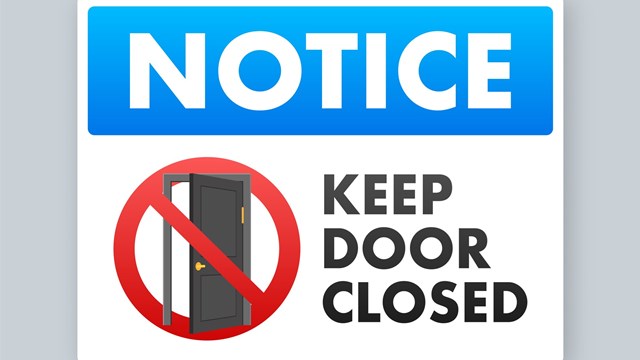
The weather is cool and crisp, the leaves are falling off the trees and it’s now that time of year when everyone starts reflecting back as to what resolutions they want to make next year.
This year has most definitely been a roller coaster ride for the New Jersey real estate industry—though not necessarily the type where you strap yourself in, raise your arms and scream in delight. When you’re working in the real estate profession, the only ride you prefer to be on is one that goes straight or straight up, but not up and down.
We asked a few New Jersey real estate professionals to reflect back on this past year and see if they could peer into their crystal ball to forecast next year’s trends and predictions.
Hopeful Signs?
Scott A. Breyer, a marketing and sales associate at Walter R. Breyer Real Estate Company in Oradell agrees that he’s been on the same ride as everyone else, but he's hopeful about the signs that change is on the horizon.
“For the first time in a long time, we started to see gains in pre-existing housing sales amongst New Jersey areas—mainly if the sales were below $600,000,” he says. “Some of this was motivated by the $8,000 first-time buyer tax credit, if a buyer closes before December of this year. Despite all the negative news, mortgage money has been readily available to those who are qualified to borrow.”
Breyer explains that much like other areas of the economy, the real estate industry is prone to a domino effect. “When the smaller homes sell, many of those people start looking at the bigger properties,” he explains.
“However, the inventory of larger homes is still outnumbering the demand by a large margin, thus the surplus of expensive and larger homes. People still need a place to live of course, but not everyone needs the big mansion-type homes. It will take a while for that sector of the market to recover.”
He also explains that builders are still holding on-spec properties and are offering many incentives to get them sold. Breyer says that in his area—Bergen County—the townhome and condo market has been fairly stable.
“I think many boroughs in the suburbs surrounding New York City will continue to recover through stabilization and gains in the lower price ranges,” he says. “The boroughs with the higher-rated school systems will always continue to thrive, as well as towns with large residential values. Many of the boroughs in Northern Bergen County fit into that criteria.”
What’s on Breyer’s wish list for 2010? Overall, he feels that next year will bring many positive changes, but he would like to see more financing made available to those who need to work and maintain their property and a decrease in the unemployment while the real estate and stock markets increase.
Stabilize & Maintain
Randy Lyn Ketive, president of Prominent Properties Sotheby's International Realty in Fort Lee, is a broker and also past president of the Eastern Bergen County Board of Realtors.She sees the current market as in a transition and, like Breyer, credits the federal tax credit with giving the market a much-needed boost.
“I'd like to add that the tax credit has also helped customers in various life stages, such as empty-nesters, since it can be claimed by any consumer who has not had ownership in a home for the past three years,” she says.
Ketive also explains that trends in Fort Lee have changed slightly from years past.“Purchasers ready to downsize their property are now more inclined to wait until their current home is under contract before buying a condo unit to suit their next life phase,” she says.
Looking ahead, Ketive says she's hopeful that the stabilization of the market will continue throughout 2010. “Expansion and extension of the first-time home buyer tax credit would not only further boost the housing industry, but it would be extremely beneficial since housing is a major contributing factor to the economy as a whole,” she says. “I would also like to see low interest rates continue to help buyers achieve the most real estate for their money.”
Curt Macysyn, CAE, the executive vice president of the New Jersey chapter of the Community Associations Institute (CAI) agrees that 2009 wasn’t a banner year for the New Jersey housing market, but he says the state did not fare as badly as other states did this year.
“In speaking with housing professionals around New Jersey, 2009 was a maintenance year,” Macysyn explains. “In other words, it was about holding on to the clients that you have by limiting or withholding price increases, as well as operating internally close to the bone.”
He also explains that a fair number of communities still moved forward with scheduled capital projects with reserve funds, and many found that they could get vendors to sharpen their pencils in the tempestuous economic climate. That being said, foreclosure and collections were common topics for discussion and education.
“The foreclosure issue was discussed several times at CAI's Legislative Action Committee level, and there was discussion about modifications to streamline the process for community associations,” he says. “While associations saw an uptick in collections, again, New Jersey fared much better than states like California, Nevada and Florida in that regard. The impact of the recession was certainly felt, but the situation is not catastrophic as it is in other areas of the country.”
Changes Ahead?
With 2009 being an election year in New Jersey, the governor’s race was won by former U.S. Attorney Chris Christie—and that might mean changes for the market.
“I have been a student of New Jersey politics since 1986, and it continues to be an enigma to me,” says Macysyn. “For as poorly as the state has been run, our citizens have great intestinal fortitude. We continue to adapt and adjust to whatever government throws at us, and that is a credit to our population. On the flip side, we continue to accept whatever mediocrity is thrown at us.”
In 2010, Macysyn believes the economy will continue to rebound at a slow but steady pace. I think that actions that folks have taken in operating their household budgets close to the bone will have a positive impact moving forward. Non-necessity items like new cars, big screen TVs, swimming pools, and eating out, will continue to lag in sales, but the impact should only be felt on those who derive their income from these sources. Since housing is a necessity, the overall impact to the industry is less than that of the overall economy.”
Macysyn’s wish for 2010 is that people everywhere become more educated on the issues facing their communities at the community, local, state and federal levels.
“With the benefit of a greater understanding of the issues, it is imperative that folks become invested in their communities with an eye toward rational debate over these issues,” he says. “I hope that civil discourse takes place, and that politicians everywhere understand the impact that their decisions have on regular folks. People should re-train themselves to listen better. The over-reliance on government to solve all problems will be the next greatest challenge.”
Lisa Iannucci is a freelance writer, author and a frequent contributor to The New Jersey Cooperator.






Leave a Comment